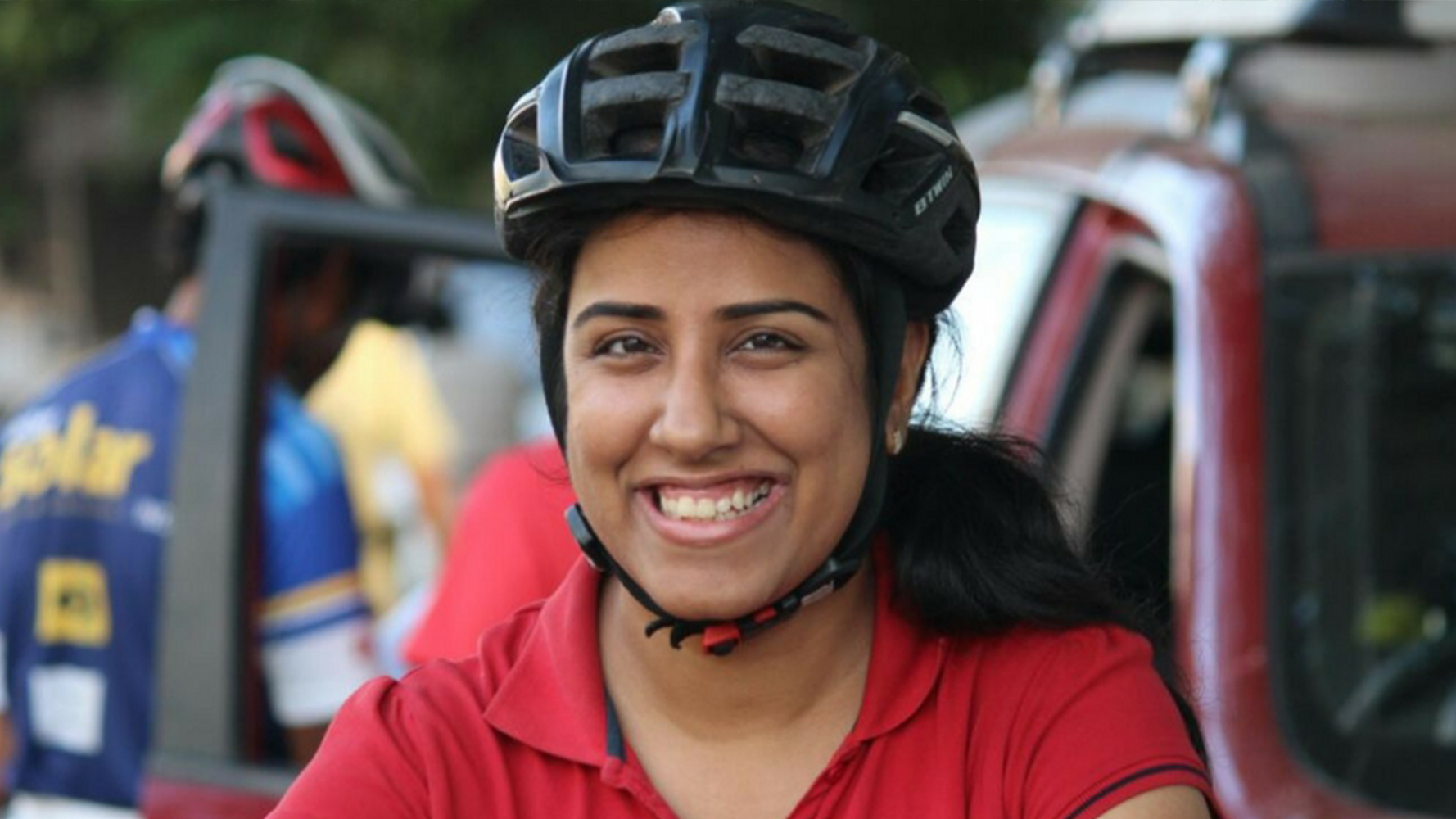My name is Nikita Lalwani, an instrumentation engineer from Baroda, India. I decided to start commuting by bike because public transit and car traffic took way too long. Since founding CyclingCities in 2014 I have become a cycling ambassador in Baroda and have inspired others in my city to start cycling.
How would you describe your mission?
Currently all the focus is on providing Flyovers for increasing number of cars when cars make just 2% of the total commute numbers. There is shift of focus required towards the needs and demands of cyclists and pedestrians and that is a majority percentage. As I am the Bicycle Mayor and riding in the city from more than 4 years and 70% of my commutes in the city are by cycle only and by choice I have not purchased any vehicle. With this I experience the situation in which people walk and cycle, with no sidewalks, and they end up being on the road where everyone honks to remove them like they are some unwanted people on the road.
Inclusive infrastructure for safe cycling is definitely going to motivate more people to take up cycling for commute and this is the best solution to bring cycling culture back in our congesting cities.
My 3 focus areas for Baroda in coming 2 years are:
- Creating experiential programs to learn, experience and start using cycling as active mobility choice for corporate and government employees who live close to their offices (within 5 kms).
- As today’s toddlers are our next generation, providing cycling education to school children through games and innovative workshops. And college youth who is soon going to shift to motorized vehicles, making cycling more aspirational for them through hackathons and various experiential events in Bicycle Activation Plan with cycle sharing;
- Most importantly, making the whole cycling movement visible at various platforms and amongst various stakeholders like city officials, urban planners, advocates, students, citizens, tourists, which will ultimately help in lobbying for better road safety through inclusive infrastructure sharing the space between cyclists, cars, motorbikes and e-bikes, as it is no more a chicken and egg problem- the problem to analyse if the number of cyclists should increase substantially first to build the required cycling infrastructure or infrastructure should come first to get more people on cycles.
What are the obstacles and challenges you’re facing in your city?
One of the greatest challenges is establishing a positive and safe cycling culture for all. Cyclists and pedestrians deserve equity on the roads and this will lead to more and more people cycling. I believe that as well as infrastructure changes, equal focus is needed on behavior change around cycling, to bring people back to cycling. Although policies are made and infrastructure is passed, little or no discussions and efforts are made to get people from there motorbikes and cars to come out of their comfort zone and start riding a bicycle.
There are lot of educational, fun and awareness engagements required which will lead us to that goal. And to sensitize so the stakeholders about cycling being the need of an hour is the biggest challenge as it is not one man show to run, we need support from all the stakeholders involved.
WHAT ARE YOUR NEXT STEPS NOW THAT YOU ARE THE BICYCLE MAYOR?
Explaining the bigger picture of bringing cycling culture back in Indian cities to all the stakeholders and how Government departments like Ministry of Health, Transport, Road Infrastructure and Education can work jointly towards making this big shift. Then devising a right strategy to work with Schools, Colleges and Corporate and Government offices with all the Government bodies as major stakeholder in all the steps.
What can other cities learn from your program?
A lot of people in different cities are trying to bring the change in cycling and mobility space, but somehow it is not integrated with authorities and bigger picture. Bicycle Mayor role gives that opportunity to interact with both the ends of the system, the people and the administration. The cities which already have a cycling culture in making can find a right Bicycle Mayor for their cities and then they can use the global network expertise and learnings of Bicycle Mayors from different cities of the world with variety of challenges and solutions. This approach will definitely revolutionize the comeback of cycling culture.
Connect
Join us

